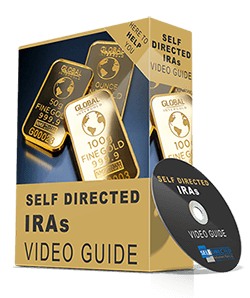Self-Directed 401(k) Real Estate Investment
Using your 401(K) to Invest in Real Estate
Can you invest in real estate through your 401(k)?
When we say you can “invest your 401(k) in real estate,” it does not refer to the traditional, employee-sponsored 401(k). You can invest your 401(k) in real estate only when you establish a Self-Directed 401(k)/Solo 401(k) or a Roth Solo 401(k).
The IRS created Self-Directed 401(k), also known as the Solo 401(k) to aid the following group of people:
- Small business owners with no employees (except for themselves or their spouse)
- Self-employed individuals
- Individuals who generate a portion of their income through self-employed activities
However, if you use your 401(k) to invest in real estate, you cannot:
- Access the investment income directly
- Use the funds for a direct benefit for themselves or the disqualified persons
Let’s understand this with an example. Let’s assume that you bought a small property for $120,000 using your Solo 401(k) plan, and that
property is rented out for $2,000 for a month ($24,000 a year).
Although you are getting a great return on your investment, you cannot legally use this money for your own benefit. This income has to be returned to your 401(k) plan. Whatever property expenses you incur, such as maintenance, repairs, etc., also has to be paid with the funds in your 401(k).
With a Solo 401(k), you have a wide array of real estate options that you can select from – raw land, residential property, commercial property, private mortgages, and tax liens. You can also choose to buy a home in a place where you’d like to live post-retirement. If the price of the property you wish to buy is more than the money you have in your Self-Directed 401(k) account, you can choose to borrow the balance required through a non-recourse loan.
Start Investing In Real Estate With Self-directed 401(K) Now!
The Process of Investing a Self-Directed 401(k) in Real Estate
-
01
Open a Self-Directed 401(k)
Since your Self-Directed 401(k) is going to purchase the property, there are certain rules you need to comply with. You have to use the funds from your Solo 401(k) to pay ALL fees, including the escrow deposit.
-
02
Fund the Self-Directed 401(k)
There are various ways to fund the solo 401(k) plan: annual contributions, transferring funds from other qualified plans, and direct rollovers from retirement plans, such as traditional IRAs, SIMPLE IRAs, and SEP IRAs.
-
03
Determine property purchasing method
There are typically four methods of investing a Solo 401(k) plan in real estate. They are as follows:
- All cash purchase
- Debt financing
- LLC
- TIC
However, each method of investment has its own set of rules. To learn more about each of these four real estate investment methods using Solo 401(k) funds, read this.
Need help to get started?
Methods to Purchase Real Estate Using Solo 401(k) (Steps Included)
This is the most common method of using Solo 401(k) funds to invest in real estate. Under the all-cash method, the Solo 401(k) owns the property free and clear.
In this method, the Solo 401(k) takes a loan from a bank or an investor to purchase the property. Like any other loan, if it is not repaid, the lender has the legal right to take ownership of the real estate. That said, one important thing to note here is that the lender has no recourse to touch your Solo 401(k) assets. Only the real estate, which was used as collateral when taking the loan is at risk, and not Solo 401(k).However, a non-recourse loan cannot be taken from people that fall under the disqualified persons’ umbrella, or from any business that you or your family members own.
List of disqualified persons:
-
You, the Solo 401(k) account holder
-
Your parents (natural or adoptive)
-
Your spouse
-
Your children (natural or adoptive)
-
Spouse of your natural children
-
People who provide services to your plan
-
Entities like partnership, corporation, commercial paper, estate, trust, which are controlled by you or your family members
Steps to purchase real estate through debt financing: Solo 401(k) plan real estate investment using a non-recourse loan
- Open a Self-Directed 401(k)
- Fund the Self-Directed 401(k)
- Select a non-recourse loan lender
- Put together the property contract/offer
- Make the earnest deposit
- The non-recourse loan lender releases loan amount to Solo 401(k) plan
- Funding is done, and the property deal is closed
Solo 401(k) real estate investments are generally made through the Solo 401(k) plan. However, some investors may establish an LLC for making real estate investments.
Steps to real estate investment using a single-member LLC
- Open a self-directed Solo 401(k) plan
- Fund the self-directed Solo 401(k) plan
- Register the LLC with the Secretary of State (usually the state where you reside)
- Draft the Special Purpose Solo 401(k) LLC Operating Agreement, outlining both the Solo 401(k) rules and IRS rules
- Get Employer Identification Number (EIN) for the LLC from https://www.irs.gov/businesses/small-businesses-self-employed/apply-for-an-employer-identification-number-ein-online. Do not use the Solo 401(k) trust’s EIN
- Open an LLC bank account. The LLC bank account is separate from the Solo 401(k) bank account
- Use your Self-Directed/Solo 401(k) to fund the LLC
- Start making investments under the Solo 401(k) funded LLC. Make your property offers using the name of the LLC and not your Solo 401(k) plan
This is a creative way to invest your Solo 401(k) funds in real estate. In this method, you partner with another investor or another Solo 401(k) owner and invest through a tenants in common (TIC) investment.This method allows you to purchase real estate with your Solo 401(k) and others personal funds too. However, the ownership is split 50/50, 60/40, or whatever is agreed upon in the agreement. Also, all income and expenses are split according to the percentage allocated to all owners in the agreement. This arrangement allows you to invest with certain family members too but not disqualified persons.
Steps to real estate investment using TIC:
- Establish a self-directed Solo 401(k) plan
- Fund the self-directed Solo 401(k) plan
- Choose the other TIC investors
- Make the earnest deposit
- Funding closing
Rules to Invest in Real Estate Using 401(k)
The IRS provides a list of approved investments for Solo 401(k) plans, but the Employee Retirement Income Security Act of 1974 (ERISA) contains certain rules that apply to sol0 401(k) investments.
- Any properties purchased with Solo 401(k) must be for rentals.
- The real estate purchased should be titled in the name of the Self-Directed 401(k) plan.
- Self-Directed 401(k) plan cannot invest in collectibles, such as antiques, art, gems, alcoholic beverages, or coins. Investments on certain precious metals are allowed if they meet the specific requirements.
- Disqualified persons are the owner employee participating in the Solo 401(k), lineal descendant, spouse, any spouse lineal descendant, your natural parents, natural grandparents, and ancestors.
- The disqualified person cannot use the property at all for personal benefits. It is entirely off-limits.
- Solo 401(k) plan owners cannot work on the property, not even perform a simple task of changing the bulb. All maintenance and repair work has to be done by an unrelated third party.
- Qualified persons - your brothers, sisters, cousins, uncles, aunts, and mother-in-law can live in the property and pay rent.
- The deposit and the purchase price for the property have to be paid using the funds in the Solo 401(k) plan or funds from a non-disqualified third-party.
- The sale, lease, or exchange of property between a plan and a disqualified person is prohibited.
- You cannot use your personal funds or funds from any "disqualified person."
- Depreciation from real estate held by a retirement account is not allowed
- You cannot lend money or extend credit to your Solo 401(k).
- All income, gained as well as lost from your Self-Directed 401(k) plan-owned real estate investment should be allocated to the Solo 401(k) plan.
- You or any disqualified person is prohibited from loaning money to your Solo 401(k) for any reason, and that also includes investing in real estate. You can manage the real estate owned by your Solo 401(k) plan; however, you cannot take compensation for doing it. Your managerial functions may include arranging for contractors, writing checks from your Solo 401(k) bank/brokerage account for paying property tax, collecting rent checks, etc.
- The Solo 401(k) owner/participant cannot purchase the property from his or her Solo 401(k) plan
Confused With Rules Or Got Any Questions?



